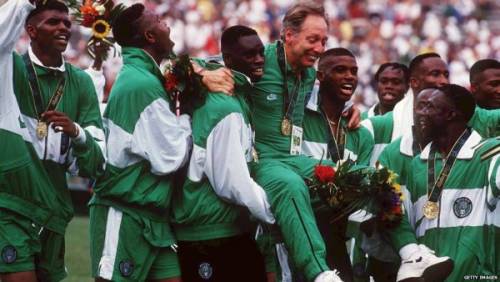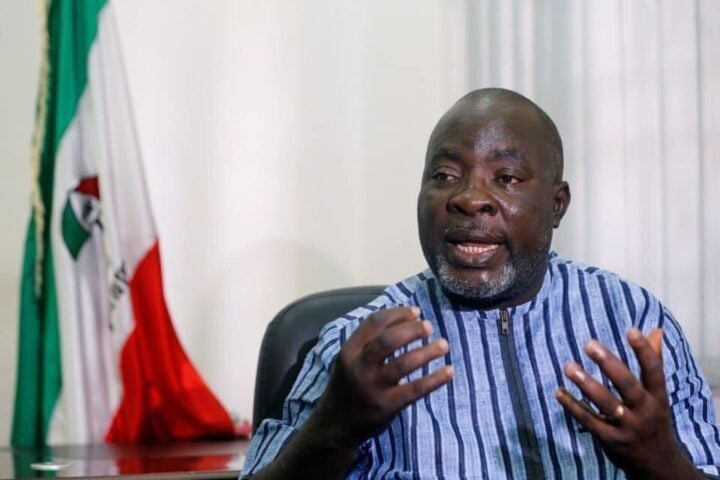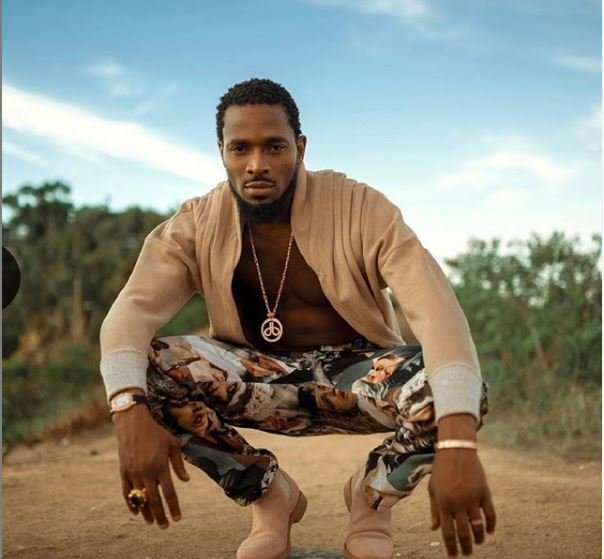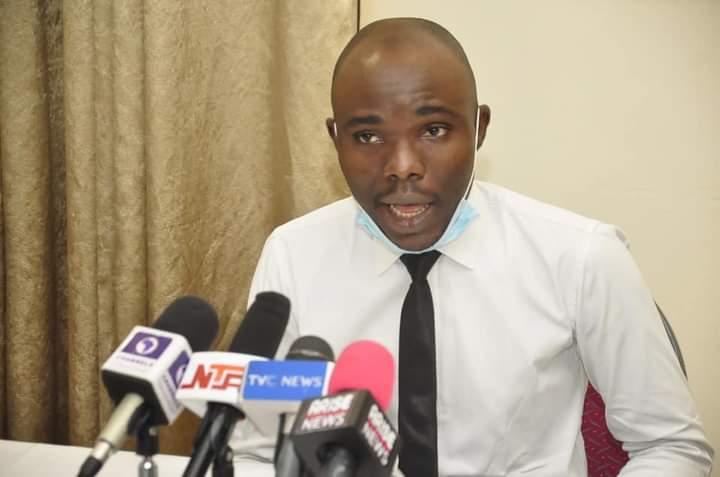How did former Heads of State, General Ibrahim Babangida (IBB) who was in power from 1985 to 1993 and General Sani Abacha (1993-1998) bring out the best in our sportsmen and sportswomen? Was it luck? Were they intentional about sports development? These are some of the questions I have been asking since the end of the 2020 Tokyo Olympics in August.
It has been over a month since the Olympics ended yet the dust has not yet settled in regards to the dismal performance of Nigerian athletes and the disqualification of some of them as a result of doping.
Recently, the House of Representatives summoned the Minister of Youth and Sports Development, Sunday Dare explain the preparedness of the Nigerian contingent for the Olympics.
During the Olympics till date, there have been several articles about the retrogression of sports in Nigeria.
Advertisement
People have referred back to 25 years ago. Is it possible to talk about that era without mentioning the people at the helm of affairs?
This is where I come in as a journalist and historian. As a chronicler, I try as much as possible to be fair to history-makers. I keep my emotions in check whenever it is time to tell the truth, irrespective of how uncomfortable it may be for some people.
In 60 years of participating in the Olympics, Nigeria has won only 23 medals, with the Atlanta 96 Olympics where we won two gold medals being our best outing till date.
Advertisement
In Sonala Olumhense’s column titled “Again, at the Olympics” on August 8, 2021, he wrote “Followers of sports in Nigeria recall the 1996 Olympics in the United States with tremendous affection. It was our finest, an event during which we won two golds and an all-time total of six.”
Also in Abimbola Adelakun’s column titled “Deadbeat Nigeria goes to the Olympics” on July 29, 2021, she was of the view that “Like everything else in Nigeria, sports have severely declined, especially in the last 25 years. Atlanta 1996 remains our epoch at the Olympics, and our other international tournaments have been poor outings. Nigeria used to be better at international competitions because the sports federations combed the grassroots for talents to hone. Today, much of those efforts are more or less dead.”
It is evident that whenever we want to look back at our glory days or peak era in sports, we refer to the 90’s.
The World Cup in USA in 1994 was Super Eagles of Nigeria’s best ever outing. It was our first and best performance ever.
Advertisement
Coming on the heels of victory at the Africa Cup of Nations in Tunisia in 1994, Nigeria qualified for the World Cup for the first time in history.
The love for football was at a fever pitch. Patriotism has never remained the same. We can’t talk about how successful we were without looking at the journey to that successful era.
General Ibrahim Babangida was Head of State of the country from 1985 to 1993. Coach Clemens Westerhof, the most successful manager of the Super Eagles was appointed when Babangida was at the helm of affairs.
According to several football journalists at the time, Westerhof had the ears of the president. The Dutch man who came on board in 1989 used four years to scout for some of the finest players in the land.
Advertisement
Daniel (the bull) Amokachi, Austin Jay-Jay Okocha, Sunday Oliseh, Emmanuel Amunike, Finidi George, were some of the talents discovered by the coach.
Together they conquered Africa and subsequently, went toe to toe with the likes of Diego Maradona, Hristo Stoichkov, Roberto Baggio, Ronaldo Delima, Bebeto, the Laudrup brothers and a host of other great players on the world stage.
Advertisement
In 1996, with another Dutch man, Bonfere Joe in charge, they made Nigerians at home and in Diaspora very proud by winning gold medal in the 1996 Olympics. They did it in style by defeating two South American powerhouses of football, Brazil and Argentina in the semi-final and final respectively.
In France 98, they stunned the world by defeating a star-studded Spanish team comprising of Barcelona and Real Madrid players who had just won the UEFA Champions league prior to the World Cup.
Advertisement
Nigerian sprinter Mary Onyali-Omagbemi was also hugely successful under IBB/Abacha. She won the bronze medal in the 4 × 100 m relay at the 1992 Olympic Games and in the 200 m at the 1996 Olympic Games. She also won the 1994 Commonwealth Games 100 metres title.
Onyali-Omagbemi performed especially well in the All-Africa Games, winning a total of 7 individual medals in the short sprints. She took a bronze medal in 1987 and won 100 m in 1991 and 1995.
Advertisement
Gold medals in 200 m were taken in 1987 and 1995 under IBB and Abacha respectively. She was also part of the Nigerian 4 × 100 m relay team that won all races between 1987 to the early 2000s, at the African Games.
Chioma Ajunwa is another Nigerian former athlete who was successful in the 90s and put smiles on the faces of Nigerians. She was notable for being the first Nigerian to win gold at the 1996 Summer Olympics in Atlanta. Ajunwa is the first black African woman to win an Olympic gold medal in a field event.
She competed at the 1990 Commonwealth Games, winning a bronze medal in the 4 x 100 metres relay, and competed at the African Championships in 1989 and the All Africa Games in 1991 where she won gold medals in the long jump.
Despite the feat achieved by our in sports that time, there were some gloomy moments under the military dictators.
For instance, when Abacha was in power, he denied the Super Eagles the opportunity to defend the nation’s cup title in 1996 in South Africa due to the diplomatic row between the two countries. As a result, Nigeria was banned by the Confederations of African Football (CAF) from participating in Burkina Faso 98 which South Africa won. Till date, a lot of football pundits believe that with the kind of team we had, we would have retained the title in 96 and 98.
However, the dark spots in that era as far as sports administration is concerned did not overshadow the bright spots as pundits keep making reference to that era.
Many of those who served under IBB and Abacha are still alive. Col (rtd) Abdulmumini Aminu (who was military governor of Borno State in the 80s and heavily involved in sports in the 90s is still around.
I think those who are in charge of sports today should swallow their pride and try and reach out to some of the sports enthusiasts of the 80s and 90s to learn a few things. Any development that would get us back to that level should be welcomed.
Yusuf Mohammed is a journalist based in Lagos
Twitter: @yusufwrites
Email: yusad4life@yahoo.com
Add a comment






